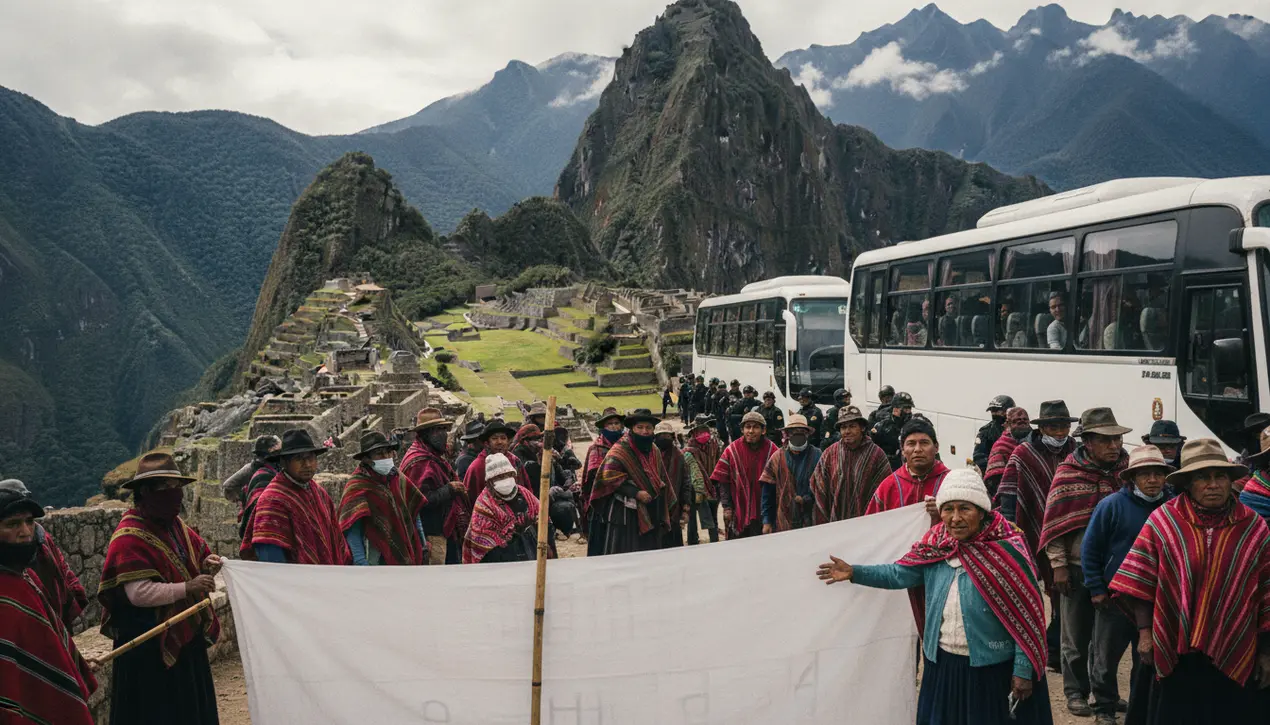
Othertravel & tourismDestinations and Guides
Tourist Bus Protests at Machu Picchu
EM
Emma Wilson
9 hours ago7 min read
The ancient stone terraces of Machu Picchu, a citadel that has silently witnessed centuries unfold, are now the backdrop for a modern-day conflict as tourist bus protests erupt at the world heritage site in Peru. This is not merely a dispute over transportation; it is a raw, emotional clash over the soul of a nation’s greatest treasure, pitting the economic lifeline of tourism against the profound cultural and environmental preservation of a place that belongs to all humanity.The immediate catalyst for the demonstrations is the fleet of coaches that ferry visitors up the winding, precarious mountain road from the town of Aguas Calientes to the iconic ruins, a service that has become a flashpoint for deeper, simmering grievances among local communities, tour operators, and governmental bodies. Protestors, their voices echoing through the Andes, are decrying what they see as inequitable profit distribution, alleging that the lucrative contracts for these buses benefit a select few while the local populations, who bear the brunt of the tourism influx's downsides—from inflation to environmental degradation—see scant reward.The situation carries the palpable tension of a pressure cooker about to blow, reminiscent of other global flashpoints where heritage and commerce collide, and the stakes could not be higher for a country where tourism constitutes a vital artery of the national economy. Peru’s government, already navigating a fragile political landscape, now faces the Herculean task of mediating a solution that appeases the legitimate economic aspirations of its people without compromising the structural and spiritual integrity of a UNESCO World Heritage Site that is perilously vulnerable to overtourism.The very path these buses travel is symbolic of the wider challenge: a narrow ledge between progress and preservation. Expert commentary from anthropologists specializing in the region warns that such conflicts are often predictable consequences of a top-down management model that excludes grassroots voices from the conservation conversation, a mistake made at other global sites from Thailand's Maya Bay to Italy's Venice.The potential consequences are stark—a prolonged stalemate could deter the international visitors Peru relies upon, crippling local businesses and fueling further social unrest, while any haphazard resolution risks inflicting irreversible damage on the sacred archaeological park. The protests at Machu Picchu are therefore more than a local news item; they are a urgent dispatch from the front lines of a global battle, a poignant case study in how we choose to steward our shared human patrimony in an era of unprecedented and often overwhelming demand.
#Machu Picchu
#Peru
#tourist buses
#protests
#world heritage site
#featured
Stay Informed. Act Smarter.
Get weekly highlights, major headlines, and expert insights — then put your knowledge to work in our live prediction markets.
Comments
Loading comments...
© 2025 Outpoll Service LTD. All rights reserved.